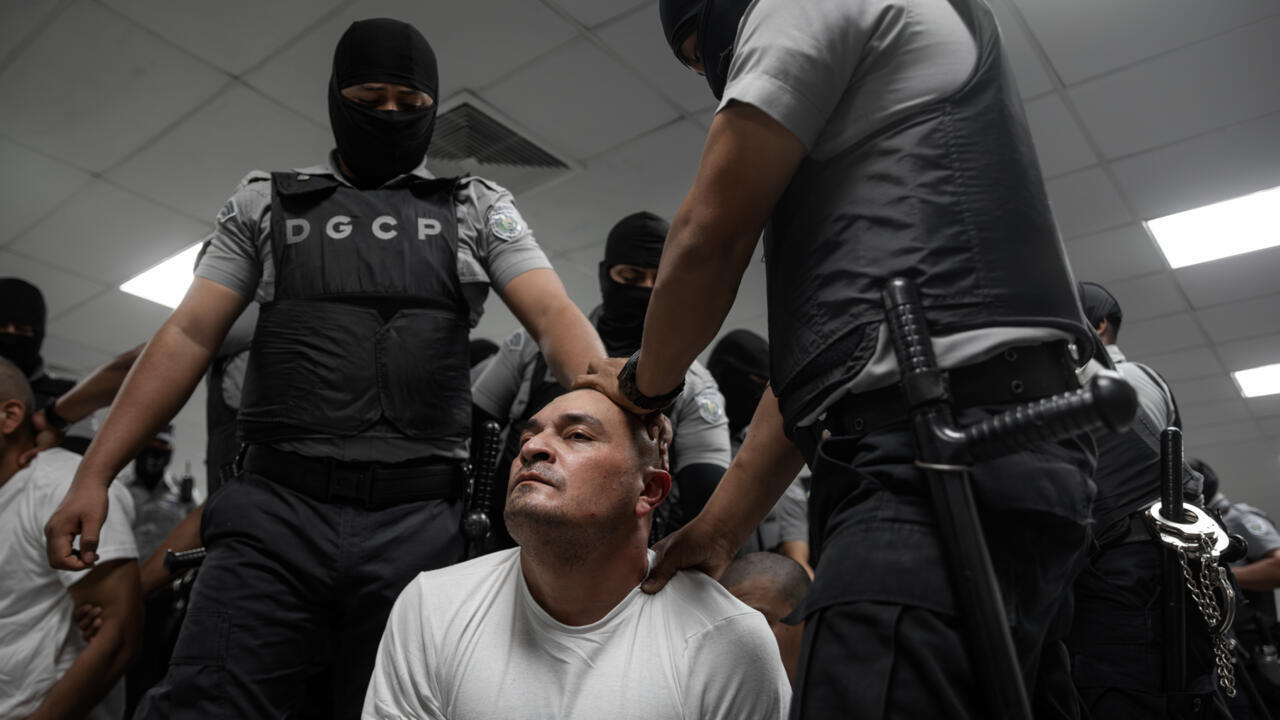The Trump administration deported hundreds of immigrants to El Salvador despite a federal judge’s order temporarily blocking the removals under an 18th-century wartime law targeting Venezuelan gang members, officials said Sunday.
U.S. District Judge James E. Boasberg issued the order Saturday, but at the time of the ruling, two deportation flights were already airborne—one bound for El Salvador, the other for Honduras. While Boasberg verbally ordered officials to turn the planes around, his directive was not included in his written ruling, and the flights continued as planned.
White House press secretary Karoline Leavitt rejected claims that officials had defied the court, saying in a statement Sunday that “the administration did not ‘refuse to comply’ with a court order. The order, which had no lawful basis, was issued after terrorist TdA aliens had already been removed from U.S. territory.” The acronym refers to Tren de Aragua, a Venezuelan gang that Trump cited in his presidential proclamation on Saturday. In a court filing Sunday, the Justice Department, which has appealed Boasberg’s decision, said it would not rely on Trump’s proclamation for further deportations unless the ruling is overturned.
Trump declined to say whether his administration had violated the court order but defended the deportations while speaking with reporters aboard Air Force One on Sunday. “These were bad people,” Trump said. When asked about invoking presidential war powers, he added, “This is a time of war,” describing the influx of criminal migrants as “an invasion.” The deportations drew praise from Salvadoran President Nayib Bukele, who agreed to house 300 immigrants for $6 million in his country’s prisons. “Oopsie… Too late,” Bukele wrote on social media platform X, sharing an article about the court ruling. His post was later recirculated by White House communications director Steven Cheung. Secretary of State Marco Rubio also praised the move, saying on X that El Salvador had agreed to detain more than 250 alleged Tren de Aragua members in its prisons, calling the facilities “very good jails” that would save U.S. taxpayers money.
Legal experts questioned the administration’s actions. Steve Vladeck, a Georgetown University law professor, said the administration may not have technically violated Boasberg’s written order but had clearly disregarded its intent. “This just incentivizes future courts to be hyper-specific in their orders and not give the government any wiggle room,” Vladeck said.
The deportations were carried out under the Alien Enemies Act of 1798, a rarely used law that grants the president sweeping powers to detain or remove foreign nationals during wartime. The law was previously invoked during the War of 1812 and World Wars I and II, including to justify the internment of Japanese Americans. Venezuela’s government condemned Trump’s use of the law, calling it reminiscent of “the darkest episodes in human history, from slavery to the horror of the Nazi concentration camps.” The U.S. has not publicly identified the deported individuals, nor provided evidence that they were members of Tren de Aragua or had committed crimes in the United States. Among those deported were two high-ranking members of MS-13 who had been arrested in the U.S., officials said.
Video released by the Salvadoran government Sunday showed shackled men being escorted from planes by officers in riot gear. The footage depicted them kneeling on the ground as their heads were shaved before being dressed in white prison uniforms and taken to the CECOT facility, a maximum-security prison central to Bukele’s crackdown on gang violence.
Immigration advocates warned that the proclamation could be used to deport Venezuelans without due process. “Any Venezuelan citizen in the U.S. may be removed on pretext of belonging to Tren de Aragua, with no chance at defense,” Adam Isacson of the Washington Office for Latin America, a human rights group, wrote on X. A lawsuit challenging the policy was filed on behalf of five Venezuelans detained in Texas. Boasberg initially blocked their deportations Saturday morning before expanding the order later in the day to cover all individuals who could be targeted under the act.
The judge noted that the law had never been used outside of a congressionally declared war and said plaintiffs might successfully argue that Trump overstepped his authority. The temporary block on deportations will last up to 14 days, during which time the immigrants will remain in U.S. custody. A hearing is scheduled for Friday to determine whether the policy will be further restricted or allowed to continue. “Once they’re out of the country, there’s little I could do,” Boasberg said.

